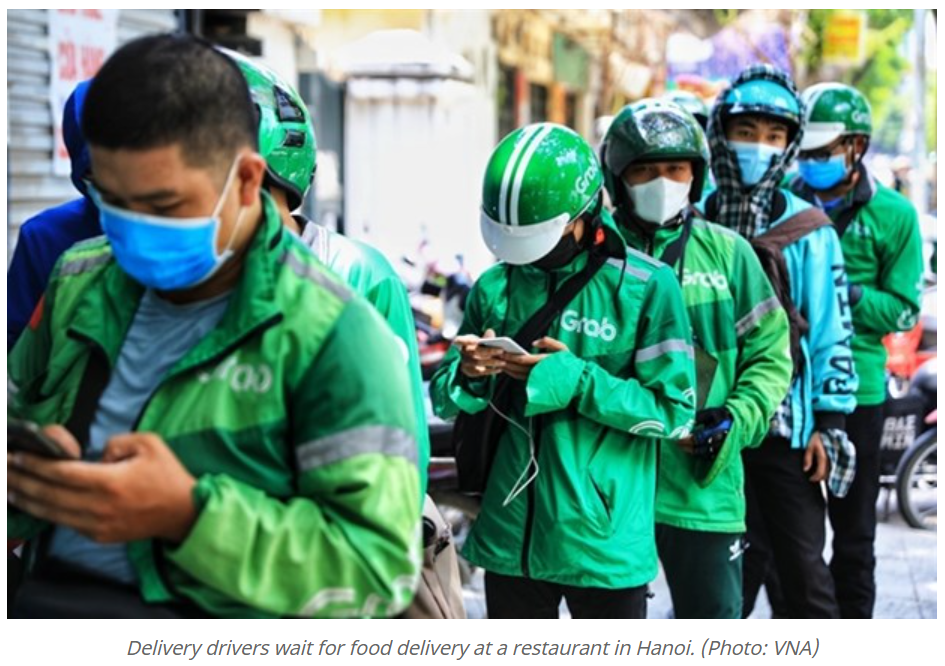Vietnam: Ride-hailing services face stiff competition
Vietnam’s ride-hailing industry revenues could reach 4 billion USD by 2025, while the industry has witnessed high demand and newcomers.
The issues were discussed at a recent seminar, “Competitive solution for the ride-hailing market in the new normal period,“ organised by the Vietnam Competition and Consumer Authority and the project for policy improvement and capacity building on competition conducted by the Japan International Cooperation Agency (JICA).
Having been present in Vietnam since 2014, Vietnam’s car-hailing service market has seen a boom with more than 20 different platforms. There are now 90,000 taxis that have contract-based car signs on the front windscreen and logo of the firms.
It is reported that Vietnam’s ride-hailing service market earned a revenue of 2.4 billion USD in 2021 and reached an average growth rate of 30-35 percent annually since 2015. The growth rate of users who use ride-hailing apps berth second place after the electronics e-commerce market in the country.
Between 2020 – 2021, during the fourth wave of the COVID-19 pandemic, social distancing measures sometimes forced ride-hailing applications to freeze completely. However, ride-hailing platforms have been expanded with services such as online food and good delivery and electronic payment due to the change in habits of Vietnamese consumers, so food delivery services have become increasingly popular especially mobile delivery apps.
According to Statista (a German company specialising in market and consumer data), the total market share of the three largest ride-hailing companies in Vietnam, Grab, Gojek and Be, reached nearly 99 percent in 2020.
Experts at the seminar said that competition on fees and service quality and diversified platforms offered certain benefits for users, including riders and drivers.
They said users would enjoy more benefits and users’ interests would be more secure, noting that this would create challenges and great pressure for potential companies that want to join this market.
Tran Phuong Lan, an official of the Vietnam Competition and Consumer Authority, said finance was the most significant barrier for the ride-hailing market. It was tough for businesses with little capital to survive and maintain their business in the ride-hailing industry.
To promote competition in the ride-hailing industry, Nguyen Huu Tuan, Director of the E-commerce Operation Management Department under the Ministry of Industry and Trade, said it was necessary to create a healthy competitive, favourable and fair environment between traditional taxis and technology taxis.
Tuan said it needed to encourage the digital transformation process and create favourable conditions on loans for newcomers to enter the market by offering them tax and online payment incentives.
In addition, it is necessary to strengthen inspection and examination to ensure that all businesses comply with competition law.
Dinh Van Minh, an official of the Ministry of Transport, said the Government issued Decree No. 10/2020/NĐ-CP on January 17, 2020, regulating automobile transport business and conditions for conducting automobile transport business, replacing Decree No. 86/2014/NĐ-CP, which was a boost for transport businesses.
Decree 10 officially took effect from April 1, 2020. It ended the pilot application of ride-hailing software for the passenger transport business with e-contracts, which had been applied for more than four years.
With the simplification of investment conditions for transport services for traditional and contract-based taxis, Decree 10 is expected to create favourable, transparent, healthy and fair competition for transport companies.
Lan said businesses needed to be more proactive and enhance the application of information technology in their business activities./.
Source: VNS


 Thailand
Thailand




